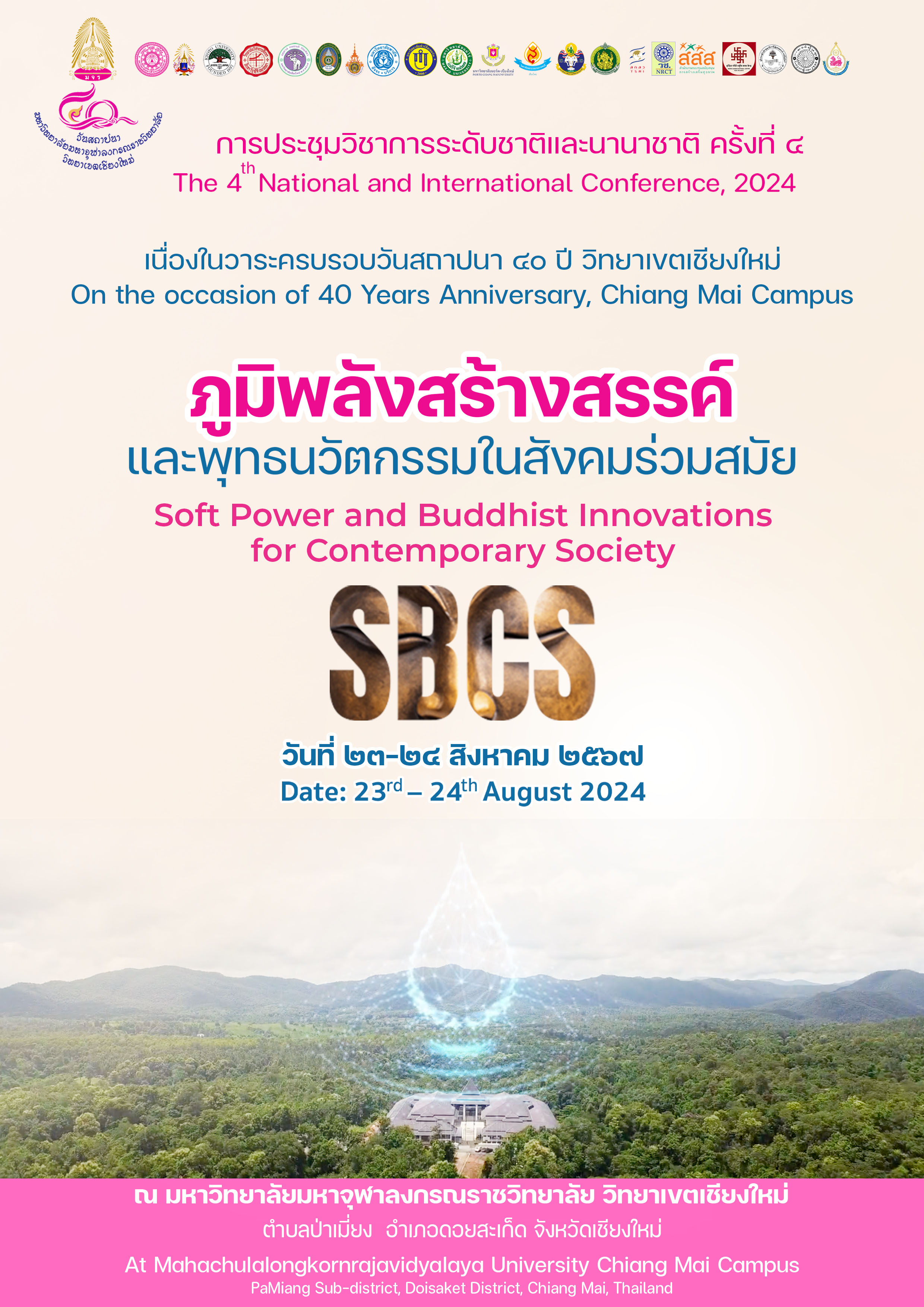The Use of English Language Among Development Monk Scholars
Abstract
This study examines the growing significance of English proficiency among Buddhist monks in Thailand, who have expanded their roles to include social development and education. English, as a global lingua franca, facilitates their participation in international Buddhist scholarship, conferences, and academic collaborations, enhancing their ability to share teachings and engage in intercultural dialogue. Benefits include better access to academic resources, improved communication across cultures, and the ability to develop and teach educational programs. However, monks face challenges such as limited resources, cultural barriers, and demanding schedules. To address these, strategies like partnering with educational institutions, using digital platforms, and integrating English into monastic curricula are suggested. Case studies show that with appropriate support, monks can achieve proficiency, thereby contributing to global Buddhist discourse and fostering a more educated and harmonious global community.
References
Clark, M. (2019). Time Management for Monks: Balancing Duties and Learning. Monastic Studies Quarterly, 15(2), 212-230.
Davies, R. (2020). Cultural Barriers in Monastic Education. Buddhist Studies Review, 29(1), 45-67.
Jones, A. (2018). Intercultural Communication in Buddhist Monasteries. Global Buddhism Journal, 11(3), 345-362.
Smith, L. (2019). Accessing Knowledge in a Global Language. Buddhist Academic Review, 12(1), 78-96.
Watson, P. (2020). The Global Role of English in Buddhist Studies. Journal of Global Buddhism, 14(2), 123-139.
Williams, T. (2021). Challenges in Learning English for Monks. Language Learning Journal, 19(2), 157-175.

